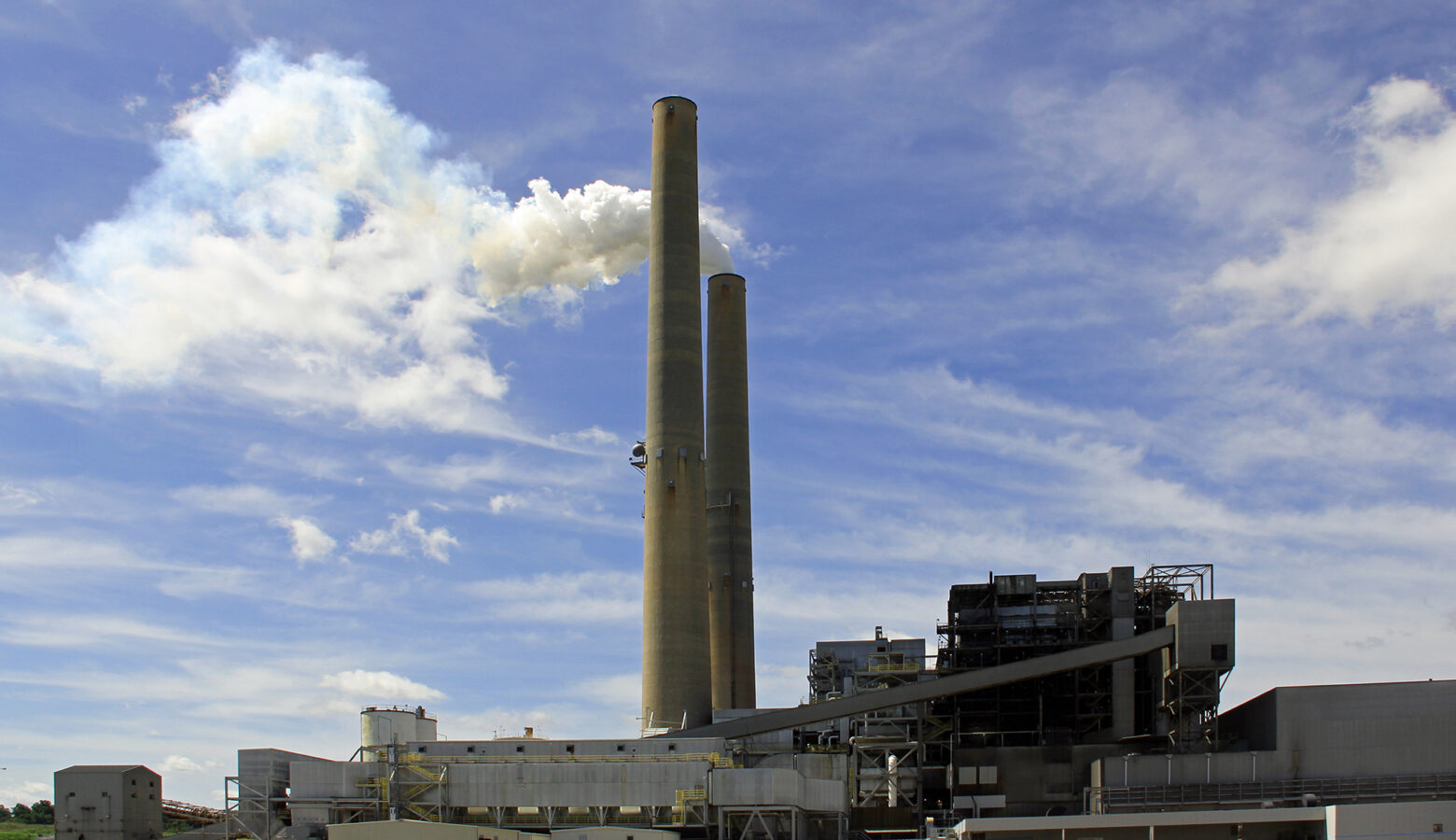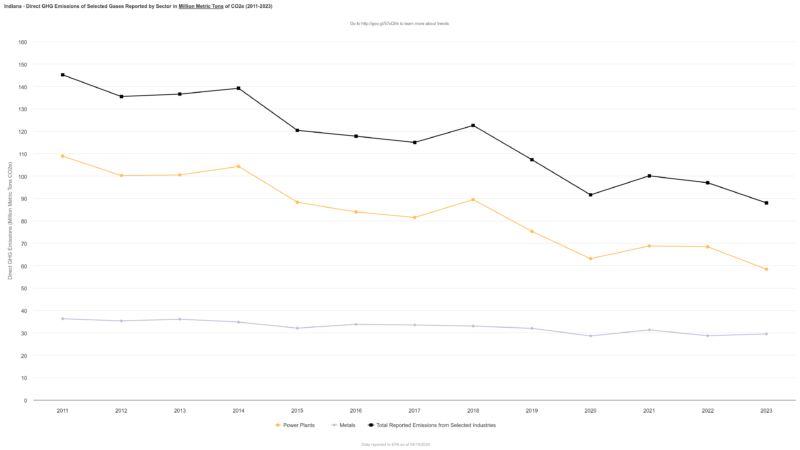Greenhouse gas emissions from Indiana industries dipped below 2020 levels last year

Industrial emissions are down 7 percent since last year — even lower than they were in 2020. That’s according to data from the Environmental Protection Agency.
It’s significant because some companies reduced their hours or shut down during the pandemic lockdown.
Coal plant closures have been driving emission decreases over the past decade. More than half of Indiana’s industrial emissions come from power plants and more than a quarter from steel and aluminum manufacturing.

Five Indiana coal plants are expected to shut down in the next four years, but many of them will be wholly or partially replaced by natural gas plants — which also emit greenhouse gases. (Courtesy of EPA Facility Level GHG Emissions Data)
Last year, CenterPoint retired its A.B. Brown coal plant and AES retired one coal unit at its Petersburg plant.
Whether this downward trend will continue through the next decade is unclear. Five coal plants are expected to shut down in the next four years, but many of them will be wholly or partially replaced by natural gas plants — which also emit greenhouse gases.
Some utilities, like Duke Energy, have also delayed coal retirements to accommodate businesses with high energy demands — like data centers.
Rebecca is our energy and environment reporter. Contact her at [email protected] or follow her on Twitter at @beckythiele.

